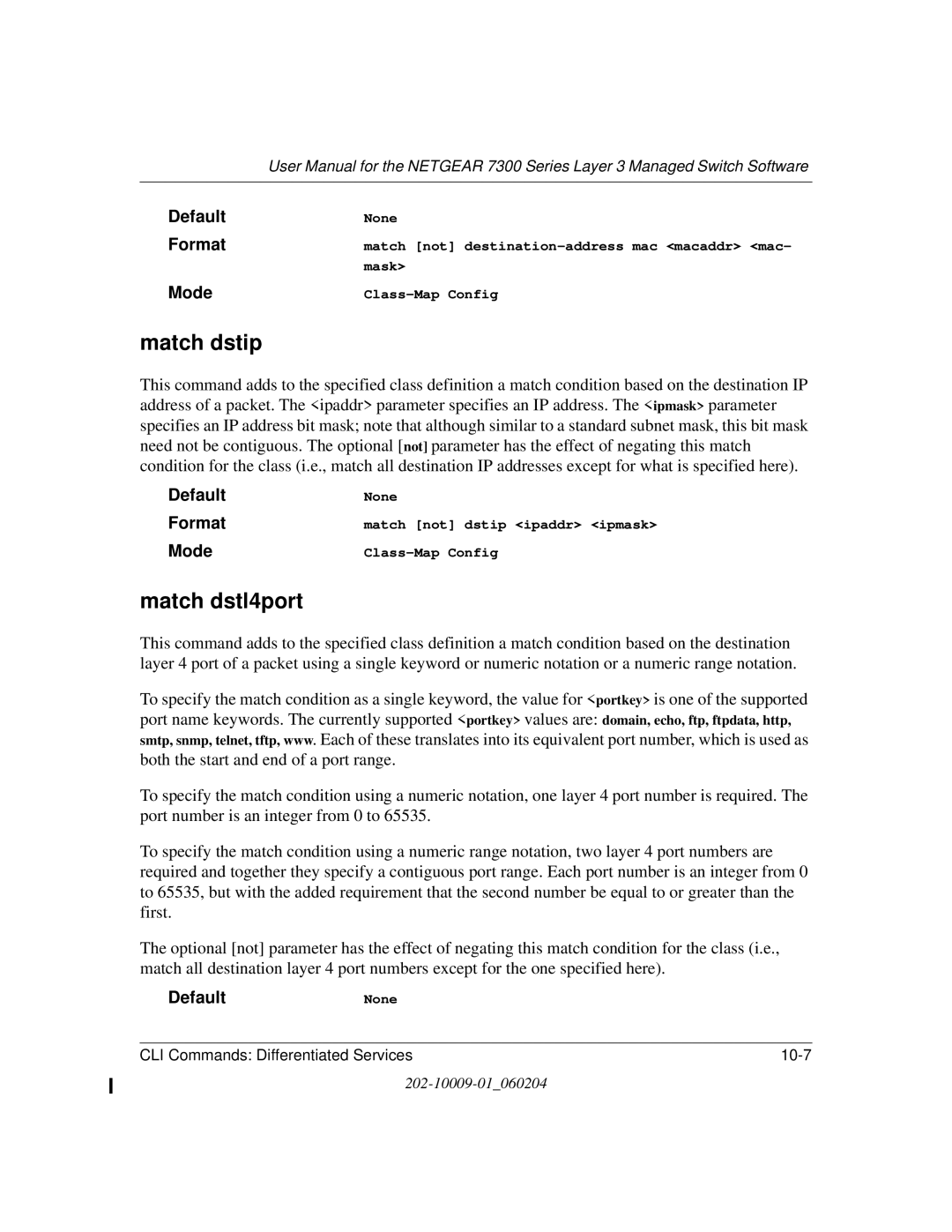| User Manual for the NETGEAR 7300 Series Layer 3 Managed Switch Software |
|
|
Default | None |
Format | match [not] |
| mask> |
Mode |
match dstip
This command adds to the specified class definition a match condition based on the destination IP address of a packet. The <ipaddr> parameter specifies an IP address. The <ipmask> parameter specifies an IP address bit mask; note that although similar to a standard subnet mask, this bit mask need not be contiguous. The optional [not] parameter has the effect of negating this match condition for the class (i.e., match all destination IP addresses except for what is specified here).
Default | None |
Format | match [not] dstip <ipaddr> <ipmask> |
Mode |
match dstl4port
This command adds to the specified class definition a match condition based on the destination layer 4 port of a packet using a single keyword or numeric notation or a numeric range notation.
To specify the match condition as a single keyword, the value for <portkey> is one of the supported port name keywords. The currently supported <portkey> values are: domain, echo, ftp, ftpdata, http, smtp, snmp, telnet, tftp, www. Each of these translates into its equivalent port number, which is used as both the start and end of a port range.
To specify the match condition using a numeric notation, one layer 4 port number is required. The port number is an integer from 0 to 65535.
To specify the match condition using a numeric range notation, two layer 4 port numbers are required and together they specify a contiguous port range. Each port number is an integer from 0 to 65535, but with the added requirement that the second number be equal to or greater than the first.
The optional [not] parameter has the effect of negating this match condition for the class (i.e., match all destination layer 4 port numbers except for the one specified here).
DefaultNone
CLI Commands: Differentiated Services |
